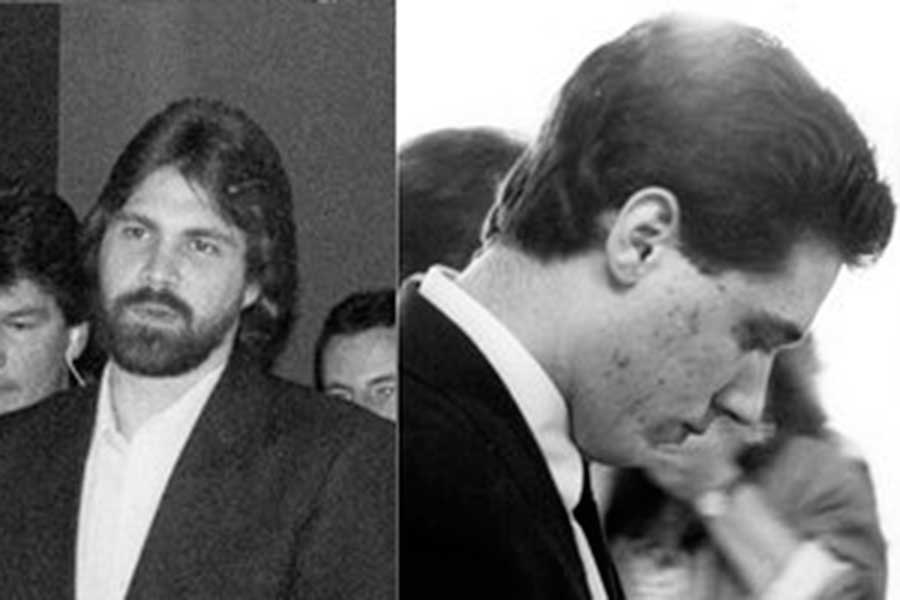A three-judge panel of the Third Circuit Court of Appeals last week upheld all current convictions against Frank R. Chester, who murdered Anthony V. Milano almost 30 years ago.
In December 1987, Chester and Richard R. Laird escorted Milano out of a Bucks County tavern and kidnapped him to a nearby wooded area.
Upon their arrival, Chester kicked and pushed Milano. Then Laird hacked out Milano’s throat with a box cutter, according to court records.
Milano was gay, and prosecutors called it an antigay hate crime, though there were no hate-crime protections in place for the LGBT community.
In 1988, Chester and Laird were convicted of first-degree murder and sentenced to death. But Chester’s first-degree murder conviction was voided in 2011, due to improper jury instructions by the trial judge.
Chester wants his remaining convictions voided — including second-degree murder and kidnapping — on the basis that his trial attorney had a conflict of interest.
Chester’s trial attorney, Thomas F. Edwards Jr., denies having had a conflict of interest in the case. The conflict-of-interest claim stems from a pending DUI charge against Edwards in Bucks County at the time of Chester’s 1988 trial.
Last year, U.S. District Judge C. Darnell Jones 2d rejected Chester’s claim, but Chester appealed to the Third Circuit Court of Appeals.
On Jan. 29, Judges Thomas L. Ambro, Thomas M. Hardiman and Kent A. Jordan also rejected Chester’s conflict-of-interest claim.
In a 26-page opinion, the judges said Chester presented no evidence that Edwards’ pending DUI caused him to avoid specific trial strategies.
Chester argued that Edwards failed to cross-examine Laird; failed to impeach Laird with his criminal record; selected pro-death-penalty jurors; failed to introduce evidence that Laird was the sole killer and the only one with a motive to kill Milano; failed to seek admission of toxicology evidence showing that Milano was drunk; and failed to elicit from Chester that he had no intent to kill Milano.
But the judges said Chester didn’t offer evidence that those alternate strategies were avoided due to Edwards’ pending DUI.
“There is no record support for [Chester’s] assertion that Edwards’ performance at trial was affected by his desire to curry favor with the District Attorney or that he chose to ‘lay down’ against the Commonwealth in his representation of Chester,” the judges wrote. “Although there may have been plausible alternative strategies for defending Chester, none of them was inherently in conflict with Edwards’ desire to be placed in [a probation program] and avoid imprisonment [for DUI].”
The judges also rejected Chester’s assertion that the trial judge should have asked if he wanted a conflict-free attorney.
“Chester is not entitled to relief on an argument that the trial judge failed to inquire into the potential conflict — unless he can establish that an actual conflict adversely affected Edwards’ performance,” the judges noted.
Additionally, the judges rejected Chester’s claim that the prosecutor should have told the trial judge of Edwards’ potential conflict of interest.
“Even if [the prosecutor] neglected an ethical obligation to disclose the potential conflict at the time of the trial — and we do not decide nor imply that he did — Chester would still have to show that he pursued his rights diligently, and it seems to us rather plain that he did not.”
The judges noted that Chester didn’t raise his conflict-of-interest claim until August 2001, which was almost eight months after the deadline to do so.
The judges said prosecutors failed to cite the relevant law when objecting to Chester’s untimeliness, but noted their main reason for rejecting Chester’s claim was its lack of merit, not its untimeliness.
The judges did agree with Chester’s attorneys that Jones misquoted and misidentified a pertinent court case when rejecting Chester’s conflict-of-interest claim.
But they said Jones’ overall opinion was legally sound, despite those errors.
The judges heard oral arguments Jan. 13.
Attorneys for Chester have 14 days to petition for a rehearing by all 13 judges on the Third Circuit Court of Appeals.
His attorneys couldn’t be reached for comment.
Prosecutors have the option of retrying Chester for first-degree murder after all potential appeals are exhausted.
“At the appropriate time, we’ll take a careful look at the issue of retrying Mr. Chester,” said Stephen B. Harris, chief of appeals for Bucks County. “The only issue is whether Mr. Chester is tried for first-degree murder. And that’s still on the table. That’s what we’ll take a careful look at.”
Harris also expressed agreement with the judges’ ruling.
“We’ve always believed Mr. Edwards didn’t labor under a conflict of interest. And we’re very pleased with the court’s opinion. It’s a solid opinion that will stand, if challenged.”
Chester, 46, and Laird, 51, remain on death row in state prisons. Laird’s bid for a new trial is pending in state Supreme Court.
